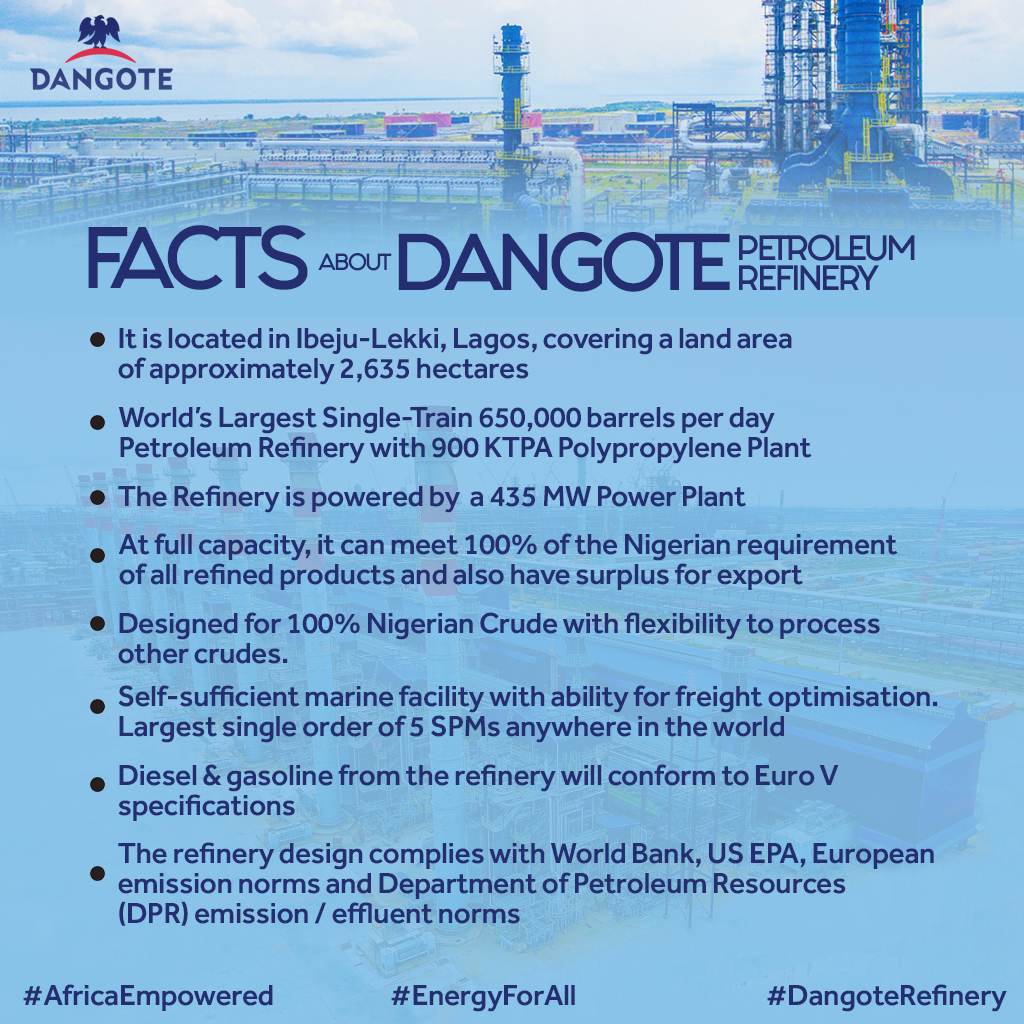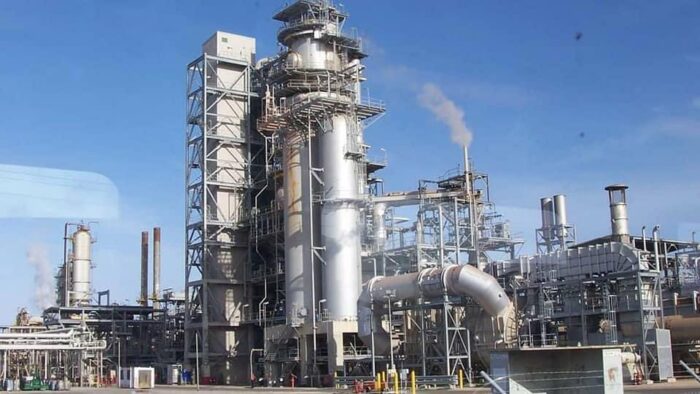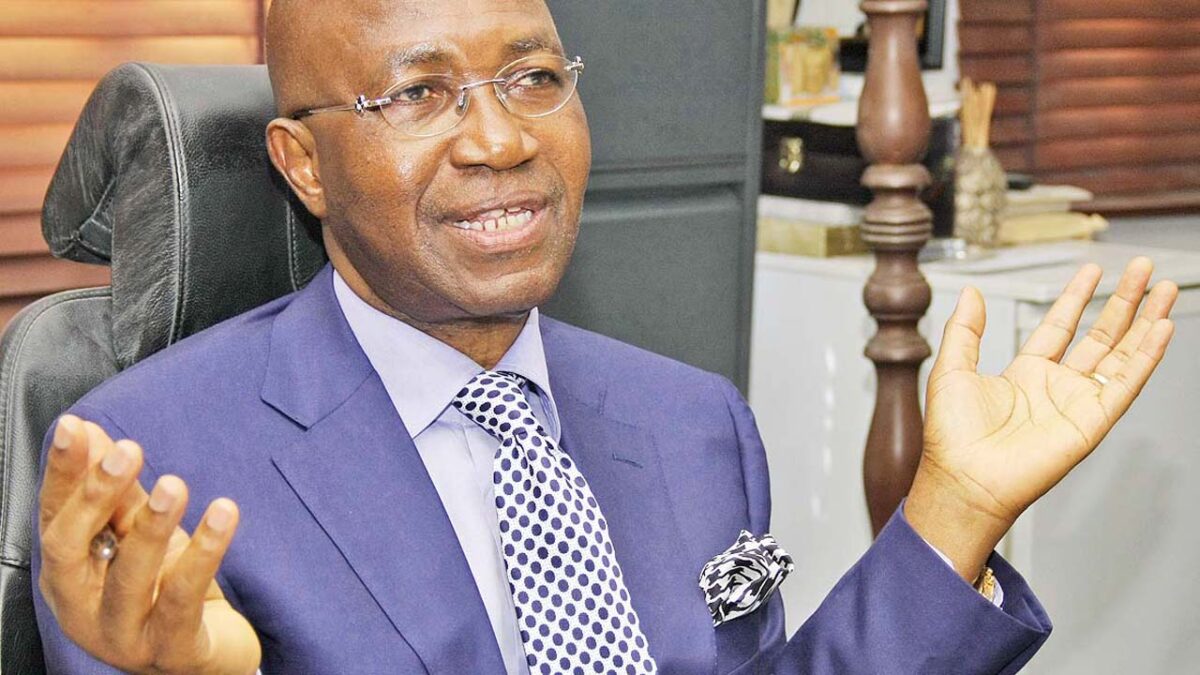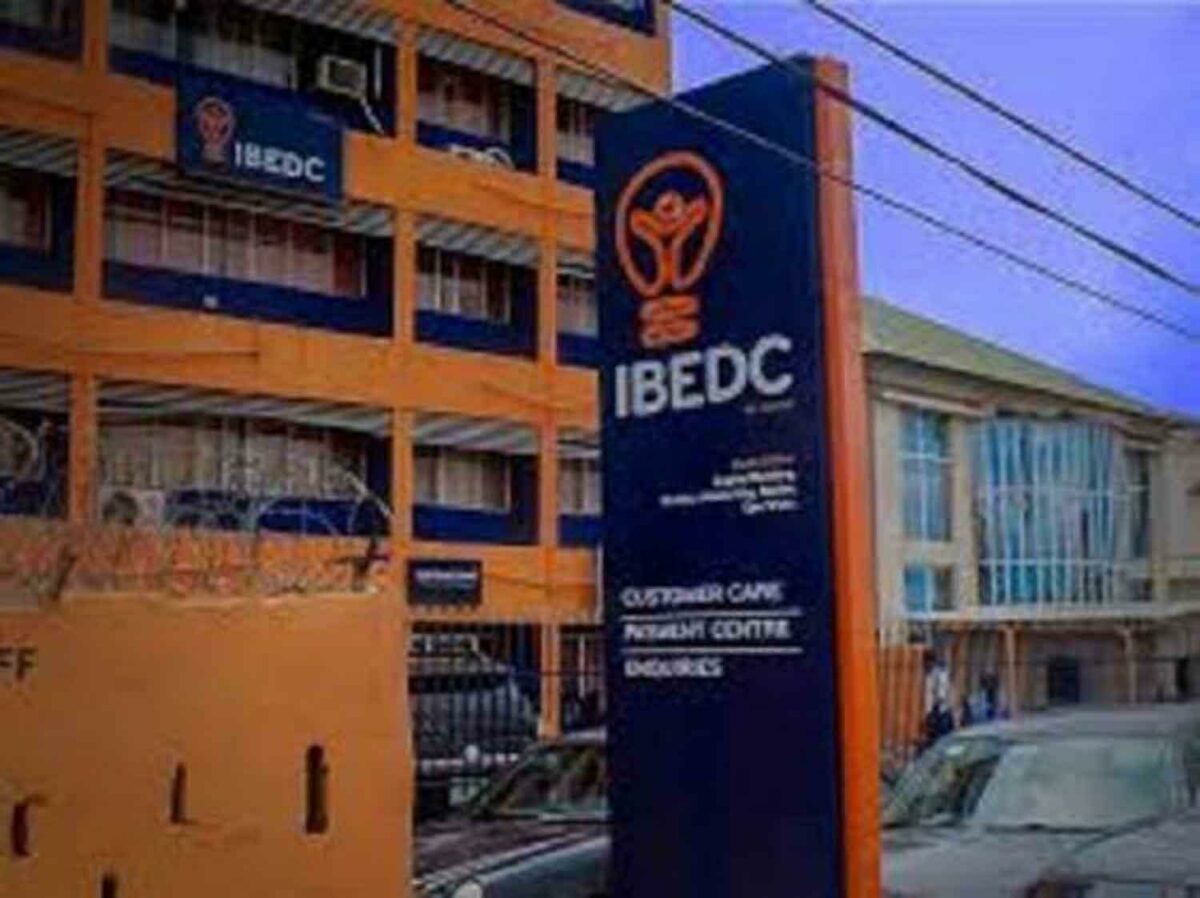Muhammadu Buhari, the President of Nigeria, was in Lagos to commission the Dangote Petroleum Refinery and Petrochemicals on Monday.
The Dangote Group, a Nigerian conglomerate, has hailed its refinery as the largest single-train refinery in the world.
“There is no single column which can process 650,000 barrels [of crude oil] per day anywhere else,” Sanjay Gupta, Chief Executive Officer of the Dangote Petroleum Refinery, said in his introductory remark.
Nigeria has been exporting all of its crude oil to be refined abroad due to inactive local refineries. The transportation of crude oil out of Nigeria for refining has been an age-long burden of cost.
READ ALSO: How Dangote Refinery Ruined the Economy of the Ancient Town of Lekki
The Dangote Refinery will become the first to operate in Nigeria in decades once it begins operations in June. FIJ lays bare the refinery’s capacities and implications for Nigeria’s domestic petroleum demands.
MASSIVE CRUDE OIL VOLUME
Crude oil is also simply known as petroleum. Petroleum is a naturally occurring liquid that mainly comprises hydrocarbons.
There are different variants of crude oil, but they can all be processed into fuel or other petrochemical materials. The common variant of crude oil in Nigeria is the Bonny Light Crude Oil (BLCO). Others found in Nigeria include Forcados Crude Oil, Qua Iboe Crude Oil, and Brass River Crude Oil.
Timipre Sylva, Nigeria’s minister of state for petroleum, said that the production of crude oil was at about 1.3 million barrels per day in 2022.
Nigeria had the sixth largest crude oil export in the world in 2020, averaging 1,879,288 barrels per day. The country achieved a petroleum production height of 2,464.120 barrels per day in 2010.
Sylva’s recent estimations were between 1.3 and 1.6 million barrels per day.
The Dangote Petroleum Refinery is a 650,000-barrels-per-day petroleum refinery. Even the world’s largest single-train refinery cannot handle up to a million barrels per day.
READ ALSO: EXPLAINED: Why Kogi Youth Are Angry With Dangote
REFINED PRODUCTS, NIGERIA’S DEMAND
Although the Dangote Petroleum Refinery cannot handle Nigeria’s 1.3 million barrels per day, it does not need to refine all of Nigeria’s crude oil to meet the volume of refined products the country requires.

“At full capacity, it can meet 100% of the Nigerian requirement of all refined products and also have surplus for export,” the Dangote Group boasted in its fact sheet.
“Beyond today’s ceremony, our first goal is to ramp up production of the various products to ensure that within this year, we are able to fully satisfy the nation’s demand for quality products,” Aliko Dangote, the chairman of the Dangote Group, said on Monday.
In 2019, the Nigerian National Petroleum Corporation (NNPC) stated that Nigeria needed a refining capacity of about 1.52 million barrels per stream day (MBPSD) to meet its petrol or premium motor spirit (PMS) requirement by 2025.
Maikanti Kachalla Baru, the former Group Managing Director of the NNPC, had said that Nigeria’s petroleum products demand would grow from 13.2 million metric tonnes (MMT) in 2015 to 15.1MMT in 2020 and 17.3MMT by 2025.
Today, Nigeria’s average daily petroleum demands include 57 million litres of gasoline, 27 million litres of diesel, 11 million litres of kerosene and nine million litres of aviation jet fuel. The Nigerian Economic Summit Group (NESG), a leading African think-tank, agrees with the Dangote Group’s estimation of meeting Nigeria’s refined petroleum daily demands.
Depending on Nigeria’s petroleum demand growth, the country is currently rejuvenating its state-controlled Port Harcourt petroleum refinery with $1.5 billion.
Two other refining companies in Kaduna and Delta State remain dormant.
Subscribe
Be the first to receive special investigative reports and features in your inbox.















